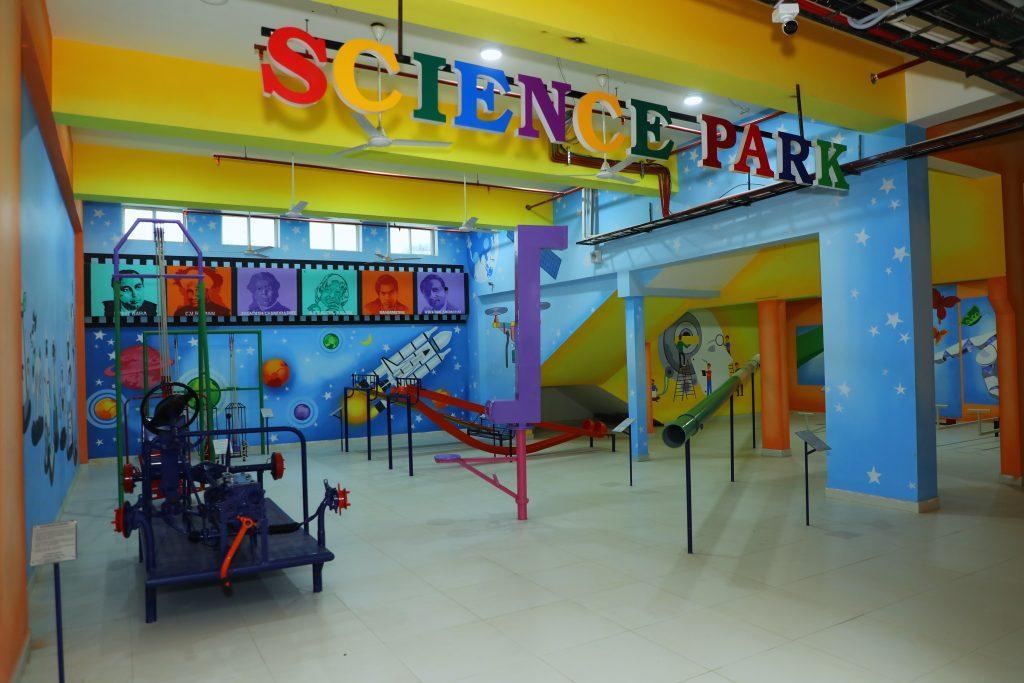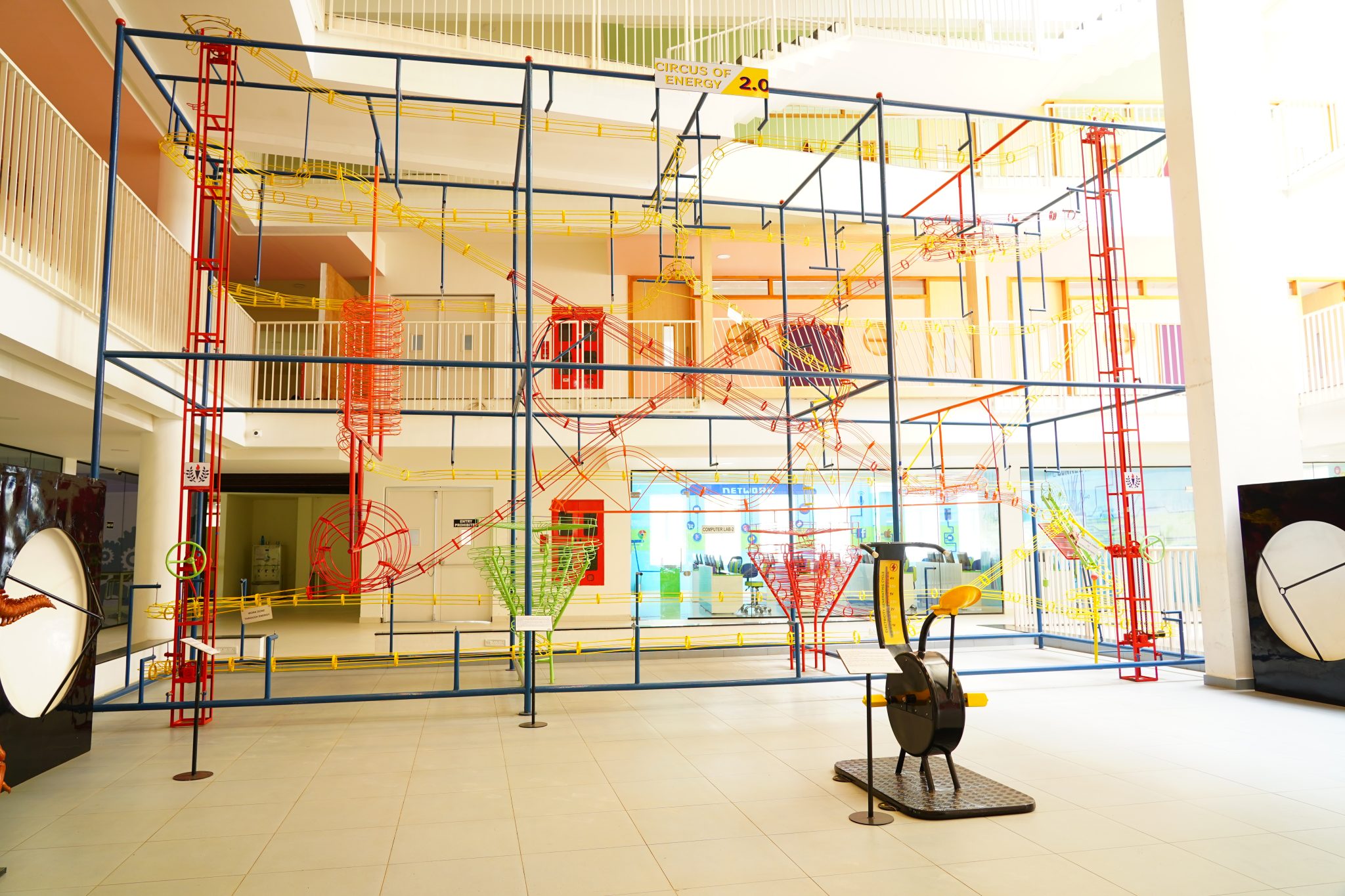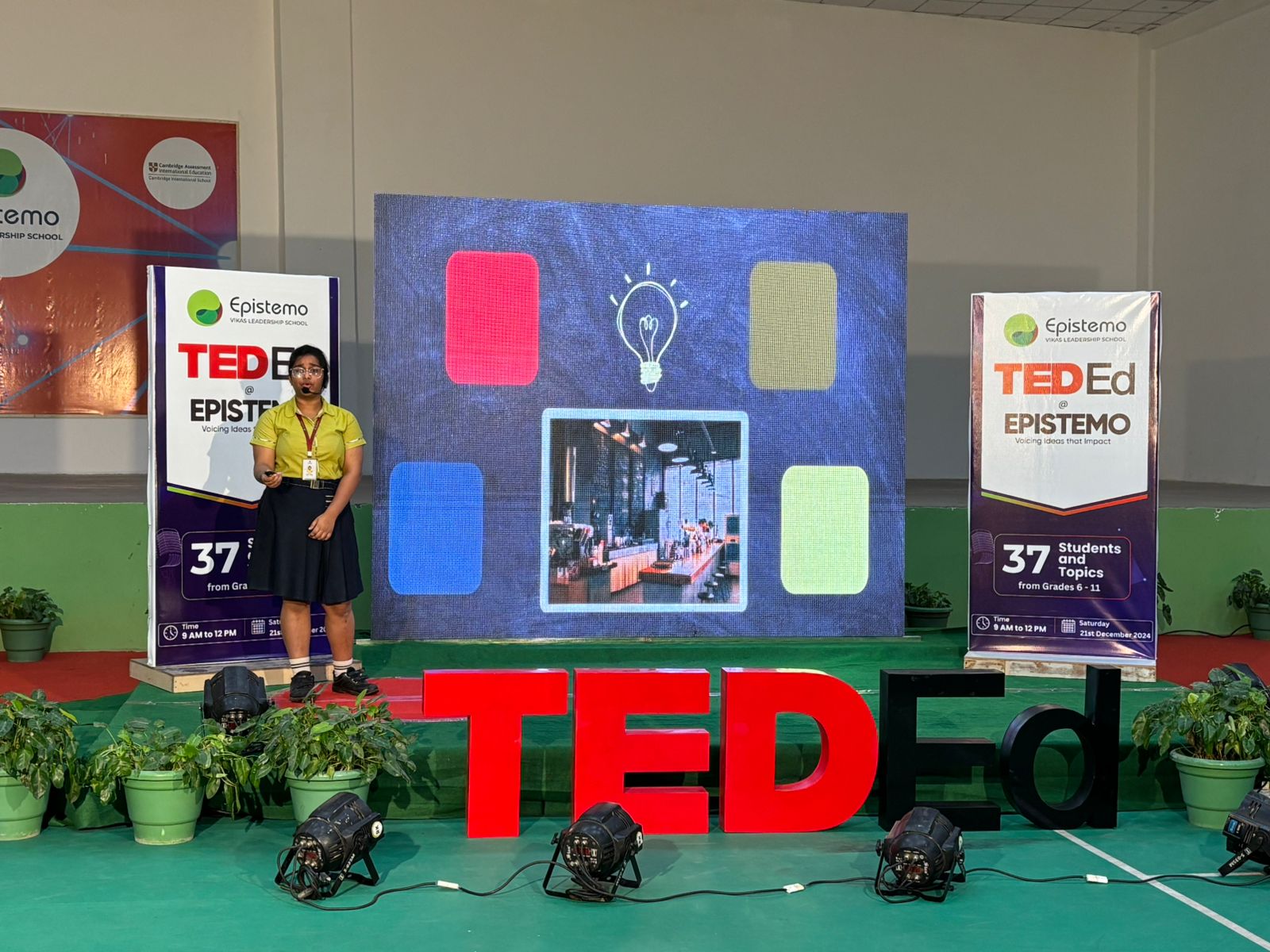At New Horizon International School (NHIS), learning stretches beyond traditional classroom boundaries. NHIS nurtures a culture of inquiry and exploration, embodied through its Science Park and community-based research initiatives. The school enables students to tackle real-world challenges while developing practical skills. This hands-on approach promotes curiosity, critical thinking, and responsibility, ensuring that students are not just prepared for exams but for life’s challenges.
Practical Learning at New Horizon International School
NHIS emphasizes holistic education, combining theory with practice. The Science Park is central to this philosophy. Unlike traditional classrooms, it allows students to interact with scientific concepts in a tangible way. The park features tools and equipment designed to give students firsthand experience with concepts in physics, chemistry, and biology. This hands-on environment brings learning to life, allowing students to test their ideas and observe the results of their experiments.
By engaging directly with scientific principles, students gain a deeper understanding. NHIS believes that students learn best by doing, not just reading. Through the Science Park, students actively explore, test, and refine their knowledge, enhancing their problem-solving skills.

Community-Based Research: Connecting Education to Real Life
NHIS goes beyond academic learning with its community-based research projects. Students are encouraged to solve real-world problems, blending academic knowledge with social responsibility. Whether it’s investigating local environmental issues or studying health concerns, students apply their classroom learning to practical situations.
In a typical project, students might examine environmental problems such as waste management or water conservation. They collect data from the community, analyze it, and propose solutions. This experience fosters a sense of responsibility and enables students to see the direct impact of their work. Community-based research teaches students how to engage with complex issues and create solutions that benefit society.
Examples of Community Projects
In environmental studies, students might focus on local concerns like pollution, sustainable agriculture, or energy consumption. They often use surveys, fieldwork, and interviews to gather data. This research not only provides real-world insights but also helps students understand the urgency of addressing environmental issues. These projects encourage them to take an active role in shaping their environment.
Another example is the school’s work in public health. Students study local health challenges, such as sanitation, nutrition, and disease prevention. They conduct research, collaborate with health professionals, and contribute to initiatives that improve public health. By connecting classroom learning to actual community needs, NHIS students gain valuable experience that prepares them for future careers.
Cross-Disciplinary Learning: Connecting Science with Other Fields
NHIS also promotes cross-disciplinary learning, blending science with other subjects. Students don’t just study science in isolation—they apply their knowledge across multiple fields. This approach encourages them to consider problems from various perspectives and develop comprehensive solutions.
For example, in a community-based research project examining urbanization’s impact on local ecosystems, students might integrate biology, geography, and economics. By considering multiple factors, students learn to think critically and address complex challenges. This cross-disciplinary approach helps them see connections between different subjects and understand the broader implications of their work.
The Role of Teachers in Guiding Research
At NHIS, teachers are mentors and facilitators, guiding students through every step of the research process. They help students refine their research questions, design experiments, and analyze their findings. Teachers encourage students to think critically, ensuring they don’t just focus on the answers but also on the questions that drive their research.
This collaborative relationship between teachers and students creates a dynamic learning environment. Teachers challenge students to push the boundaries of their knowledge, encouraging them to ask deeper questions, explore new ideas, and find innovative solutions. The focus is not just on providing answers but on fostering a mindset of curiosity and discovery.
Fostering Global Citizenship Through Research
NHIS’s commitment to global citizenship is evident in its community-based research projects. Students learn that their work doesn’t just affect their immediate surroundings—it can have a far-reaching impact. Whether they are addressing climate change, social inequality, or healthcare access, students are encouraged to think globally and act locally.
Through community research, NHIS students gain an understanding of global issues and how local actions can contribute to broader solutions. The school aims to develop students who are not only academically proficient but also socially responsible and ready to contribute positively to the world.
Science Park and Research: Fostering Leadership and Problem-Solving
The Science Park and community-based research projects also foster leadership and problem-solving skills. Students take ownership of their projects, learning how to lead teams, conduct research, and present their findings. These skills are crucial in both academic settings and in the workplace.
In the Science Park, students can experiment with various theories, testing and refining them to develop a deeper understanding. This process enhances their critical thinking and analytical skills, preparing them for future challenges. In the community-based research projects, students work in teams, learning how to collaborate, share ideas, and solve problems together. These experiences teach them how to work effectively in groups, a skill that is essential for future careers.

Building a Future-Ready Education System
NHIS’s commitment to community-based research ensures that students are not just learning academic concepts but are also ready to face the challenges of the future. The integration of the Science Park and research projects provides students with the practical knowledge and skills needed to solve real-world problems. This future-ready education prepares them for success in their careers and equips them with the tools they need to become leaders in their communities and beyond.
Through its emphasis on critical thinking, collaboration, and creative problem-solving, NHIS ensures that students develop the skills necessary to thrive in an ever-changing world. The focus on community engagement and social responsibility further prepares students to become responsible, ethical global citizens who are ready to make a positive impact.
Conclusion: Is New Horizon International School good school?
At New Horizon International School, education goes beyond textbooks. Through initiatives like the Science Park and community-based research, students not only learn scientific principles but also apply them to real-world situations. This approach encourages critical thinking, fosters collaborative learning, and nurtures a sense of social responsibility.
By preparing students to tackle real-world challenges and fostering a mindset of inquiry and exploration, NHIS ensures that its graduates are not just academically proficient but also equipped to make a difference in the world. With a focus on both academic excellence and community engagement, NHIS provides a well-rounded education that prepares students for success in the modern world.


